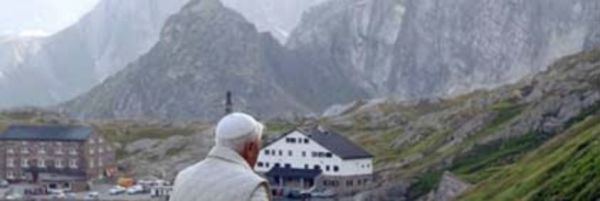We see this great figure, this force in the Passion, in resistance to the powerful. We wonder: what gave birth to this life, to this interiority so strong, so upright, so consistent, spent so totally for God in preparing the way for Jesus? The answer is simple: it was born from the relationship with God, from prayer, which was the thread that guided him throughout his existence. John was the divine gift for which his parents Zechariah and Elizabeth had been praying for so many years (cf. Lk 1:13); a great gift, humanly impossible to hope for, because they were both advanced in years and Elizabeth was barren (cf. Lk 1:7); yet nothing is impossible to God (cf. Lk 1:36). The announcement of this birth happened precisely in the place of prayer, in the temple of Jerusalem, indeed it happened when Zechariah had the great privilege of entering the holiest place in the temple to offer incense to the Lord (cf. Lk 1:8-20). John the Baptist’s birth was also marked by prayer: the Benedictus, the hymn of joy, praise and thanksgiving which Zechariah raises to the Lord and which we recite every morning in Lauds, exalts God’s action in history and prophetically indicates the mission of their son John: to go before the Son of God made flesh to prepare his ways (cf. Lk 1:67-79).
The entire existence of the Forerunner of Jesus was nourished by his relationship with God, particularly the period he spent in desert regions (cf. Lk 1:80). The desert regions are places of temptation but also where man acquires a sense of his own poverty because once deprived of material support and security, he understands that the only steadfast reference point is God himself. John the Baptist, however, is not only a man of prayer, in permanent contact with God, but also a guide in this relationship. The Evangelist Luke, recalling the prayer that Jesus taught his disciples, the Our Father, notes that the request was formulated by the disciples in these words: “Lord, teach us to pray, just as John taught his own disciples” (cf. Lk 11:1).
Dear brothers and sisters, celebrating the martyrdom of St John the Baptist reminds us too, Christians of this time, that with love for Christ, for his words and for the Truth, we cannot stoop to compromises. The Truth is Truth; there are no compromises. Christian life demands, so to speak, the “martyrdom” of daily fidelity to the Gospel, the courage, that is, to let Christ grow within us and let him be the One who guides our thought and our actions. However, this can happen in our life only if we have a solid relationship with God. Prayer is not time wasted, it does not take away time from our activities, even apostolic activities, but exactly the opposite is true: only if we are able to have a faithful, constant and trusting life of prayer will God himself give us the ability and strength to live happily and serenely, to surmount difficulties and to witness courageously to him. St John the Baptist, intercede for us, that we may be ever able to preserve the primacy of God in our life. Thank you.
[Pope Benedict, General Audience 29 August 2012]












